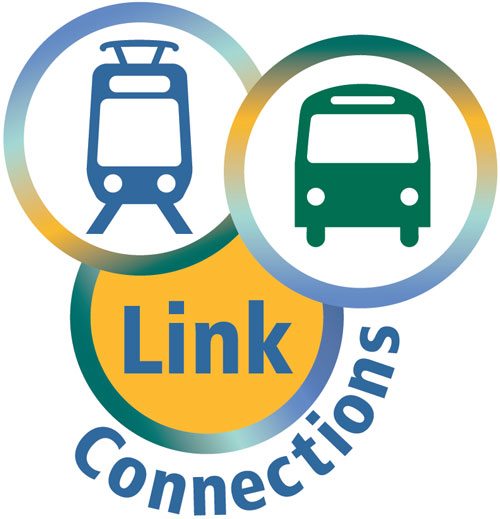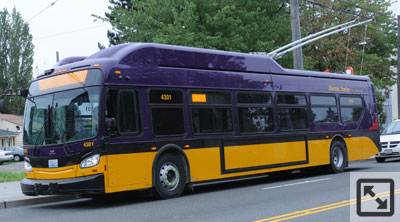Moving toward service improvements on many fronts
November 7, 2014
Seattle voters' resounding approval of transit funding was the highlight of this week. We're looking forward to partnering with the city to substantially expand and improve Metro bus routes serving Seattle residents.
The yes vote enables Seattle to purchase Metro service through King County Executive Constantine's Community Mobility Contracts Program. The Executive, Seattle Mayor Ed Murray, and Seattle Councilmember Tom Rasmussen have announced a preliminary agreement that would expand Metro service in the city by about 10 percent. Service hours would be added to Metro routes that are chronically overcrowded or unreliable or need more frequent trips to meet demand. We're planning to make the service improvements in June and September 2015.
The draft agreement also outlines steps Metro and the city will take to ensure we're making the most of every dollar invested in more Seattle service.
We're working with the city now to flesh out the agreement, including the exact route improvements. It will be submitted to the city and county councils in December for adoption early next year.
The need is clear. Seattle voters, like transit riders across the county, undoubtedly have experienced the packed buses that have come with growing ridership. Metro is on track to deliver 120 million rides countywide this year — a record high — and our financial situation has not allowed us to expand to meet the demand.
Our just-released 2014 Service Guidelines Report, which analyzes the performance of our transit system and identifies investment needs, found that Metro should be providing 15 percent more service to meet current demand countywide.
It's great news that Seattle can take a huge step toward meeting transit demand in the city today, but we must also find a way to address unmet public transportation needs in the rest of the county and in the future as ridership grows. That's why even as ballots were being counted Tuesday evening, Executive Constantine pledged to continue leading efforts to forge a regional, long-term transportation funding solution.
Proposed task force will consider service guidelines refinements
To help address King County's complex mobility needs, this week the Executive proposed to work with the County Council and city partners to form a Service Guidelines Task Force next year.
This new task force will build on the work done in 2010 by the award-winning Regional Transit Task Force. The RTTF recommended a new approach to allocating Metro service using objective, data-based service guidelines. The County Council subsequently adopted guidelines that Metro has used to make our bus system more productive over the past three years.
The new task force will further analyze how transit service is allocated and measured across the region, and recommend guidelines refinements that would lead to a better regional transit system.
More to come after this process gets underway.
Teaming with Sound Transit to seek rider advice as U-Link launch nears

Following actions taken by Executive Constantine in June to advance joint transit planning, Metro and Sound Transit are working together more closely than ever. Our goals include new operating efficiencies and a seamless, integrated transit network.
Toward those ends, we jointly launched a major public outreach effort this week. With Link light rail coming to Capitol Hill and the University of Washington (Husky Stadium) in early 2016, we're inviting the public to help us plan an efficient and easy-to-use network of light rail and bus services.
In November, we're asking transit users in Capitol Hill, the U District, and northeast Seattle to tell us how they use bus service today, what works well, and what they'd like to see change. We're forming a community sounding board as well. Outreach will continue next year, when we'll seek feedback on suggested bus service changes.
We expect the King County Council and the Sound Transit Board to adopt service changes next summer. The revisions will be made in March 2016, soon after Link service to the University starts.
Just arrived: prototypes of our new trolley buses
We just received two prototypes of the quiet, energy-efficient, zero-emission trolley buses that will replace Metro's aging trolley fleet over the next two years.
We'll be testing these 40-foot trolley buses in the months ahead, so you might see them on Seattle streets. Next spring, we'll be testing 60-foot buses that will also be part of the replacement fleet.

The new trolley buses have some great features. They consume about one-third less energy than our existing trolleys, and use regenerative braking that puts power back into the energy system.
The buses have back-up batteries that enable them to operate off-wire for several miles. We'll be able to reroute them around traffic accidents or construction zones, or keep them going if the trolley wires lose power, reducing the need to sub in diesel buses.
Passengers will enjoy low floors that make it easier to get on and off the bus, an updated wheelchair restraint system, and filtered heating and air conditioning.
We're pleased by the economies of the new fleet as well. By teaming up with the San Francisco Municipal Transportation Authority on a single trolley purchase contract, Metro got highly competitive pricing on our purchase of 141 buses. Approximately $138 million in federal grants will fund about 75 percent of our $164 million total trolley purchase cost. And we expect the electric trolley system to cost less to operate than Metro's hybrid fleet over the lives of the vehicles.
You'll be able to check out the new trolley buses yourself as our fleet of 40-foot buses arrives in spring and summer 2015, followed by the 60-foot buses in late 2015 to mid-2016.
Sincerely,
Kevin Desmond, General Manager
King County Metro Transit
Rob Gannon
General Manager, King County Metro Transit

If you live in King county, Metro is your public transportation system. I want you to know about our performance and the innovative service improvements we’re bringing your way.
Visit here often to read my newsletter, or sign up to receive it by e-mail.

